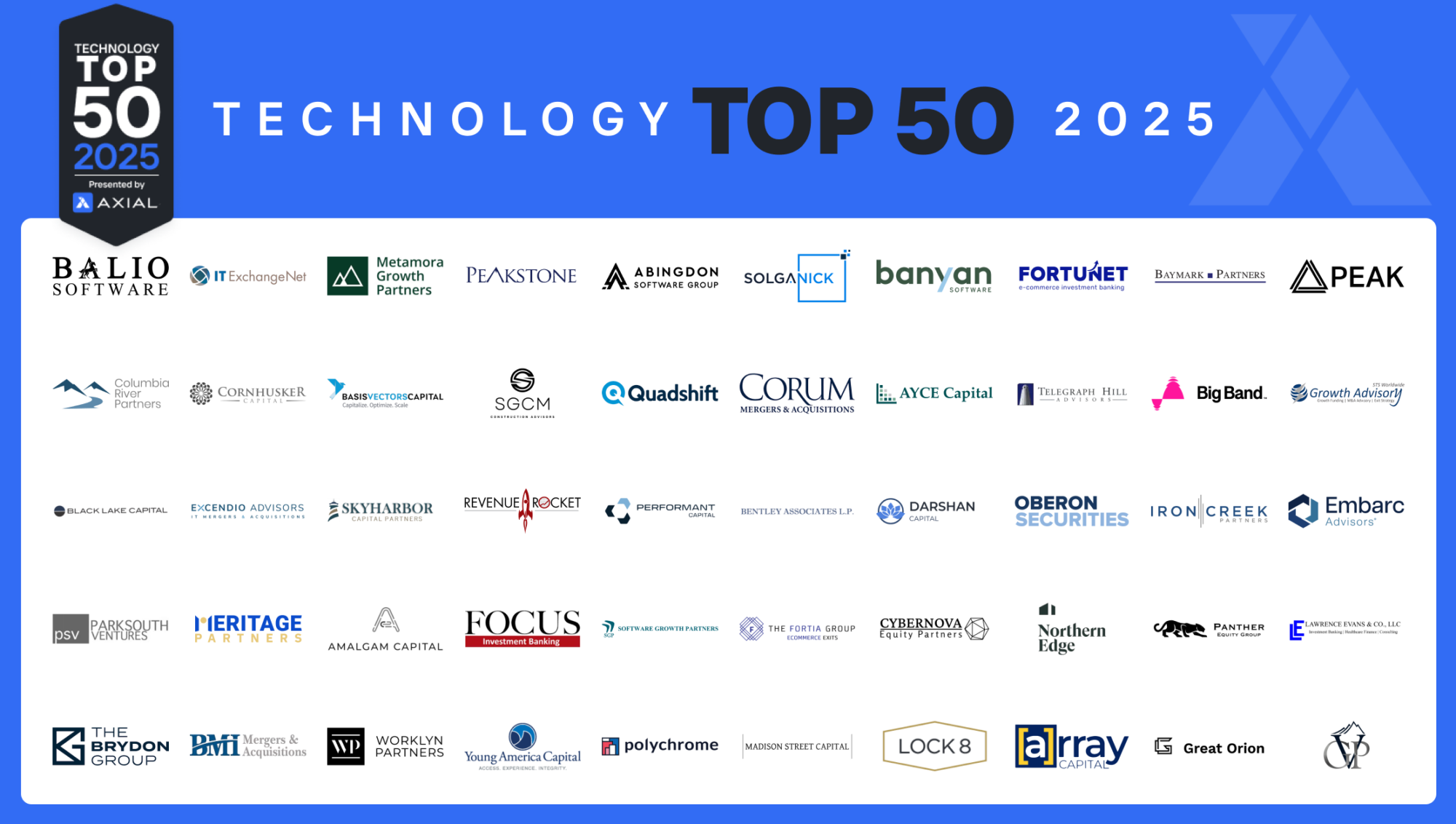
The Top 50 Lower Middle Market Technology Investors & M&A Advisors [2025]
Technology remains a steady presence in the lower middle market, representing ~13% of deals brought to market via Axial over…
Healthcare M&A activity has seen a hearty uptick this year, making it an attractive — and exhausting — space for advisors bent on helping sellers pilot through the complicated deal-making process.
Los Angeles-based Mark Thomas, Mike Moran, and Andre Ulloa, who worked together for years in a similar capacity, seized the opportunity this fall to launch their own sell-side advisory firm, M&A Healthcare Advisors. Within only five weeks of operation they were busy guiding several sell-side clients in the healthcare realm. Two of these clients operate in the behavioral health sector, and the firm’s sweet spot is aiding companies generating $100 million or less in revenue, noted Thomas, a partner and the firm’s director of operations. The firm also offers hourly consulting services and performs expert valuations and witness testimony, though sell-side representation is its primary focus.
“The fact that we have a number of sell-side clients in our first five weeks is telling for a variety of reasons,” stated Moran, partner, executive advisor, and the firm’s behavioral health specialist. The booming healthcare M&A market, much like the competitive housing market, is allowing sellers to lure numerous buyers to the table. “To us client is king, and multiple offers are a way to drive these businesses above market norms,” he said.
The timing for this trio couldn’t be better, as they are setting sail when their expertise is surely needed. In the first half of 2021, 142 middle market transactions averaging between $10 million and $1 billion closed, up from 124 transactions during the first half of 2020, reported national investment bank Baker Tilly Capital, LLC, in its recent Healthcare M&A update. In the lower middle market, buy-side interest has risen since 2020, and is forecast to increase by more than 26%, Axial noted in its fall Lower Middle Market Pursuits report.
The behavioral health sector, which includes addiction treatment centers and developmental disabilities and autism services, has been particularly impacted by COVID-19, as providers grapple with staffing shortages, the use of telemedicine, the rise of in-home services, and a growing need to address pandemic-related patient stress. Many adults have reported negative impacts on their mental health and well being, and have upped their alcohol consumption or substance use since the pandemic surfaced, reported the Kaiser Family Foundation last year. Deal-making in this sector has been steady: Behavioral health saw 25 total deals in the third quarter this year, conveyed Mertz Taggart, an M&A advisory firm in Fort Myers, Fla., in its Behavioral Health M&A Q3 2021 Report.
In summary, the rapidly moving healthcare sector, with behavioral health in the midst, is itching for continued investments and consolidation.
The partners at M&A Healthcare Advisors believe strongly that lower middle market sellers — most of them founders of their own healthcare-focused companies — shouldn’t go the M&A route alone. For starters, healthcare is particularly tricky to navigate: Challenges include dealing with payer contracts and compliance regulations; working with Medicare, Medicaid, and insurance providers; and ensuring that patient records are kept confidential, Thomas noted. In addition, firms like M&A Healthcare Advisors typically are well networked, and can bring multiple buyers to the table through their cache of connections: Given their national connectivity to organizations seeking healthcare acquisitions, it is common to have 30 to 50 buyers on average looking into each business they represent — and the larger the company, the more attractive it is in the market, Moran said of his team. Some of these buyers may be private equity firms, which are looking for a strategic move into a certain segment or locale. Roughly 25% of the firm’s deals are in an equity-holding position, he noted. There’s also no one-size-fits-all deal, and each transaction has its own nuance and may bring a possible hiccup or two.
M&A Healthcare Advisors finds buyers through Axial, constant networking, word of mouth, and via its website. “Our goal is to empower the seller, and to answer as many questions for those buyers and identify who the real players are in this process,” Thomas said.
The firm also determines valuations, and steers sellers through the challenging due diligence process, the latter of which can last 60 to 120 days. It also helps sellers find deal-savvy accountants and attorneys. And it can conclude whether a seller and a buyer are a cultural fit, which is vital for success and for seller peace of mind. M&A Healthcare Advisors takes an active role in the deal-making process from start to finish, vetting the books of the seller and managing the acquirer, and helping business owners through what can be a very emotional time. “It’s so much more than just connecting our clients to a buyer,” Moran said.
Together, the firm’s partners have over 50 past healthcare deals under their belts, and that experience could be invaluable to sellers, many of whom are exiting a business for the first time. “It really is an elevated platform,” Thomas noted. “We work with clients as soon as they are ready. If they have a sale that is five years away, we are happy to stay in touch with them and work with them up until the point of sale.”
The firm’s ambition is to become a trailblazer in the deal-making healthcare space, and its founders are actively marketing their services via networking, educating themselves on industry niches, pushing blogs and video content, and speaking at conferences, while in the throes of a active client engagements.
“Over time, the hope is to get into a position to compete with those larger investment banks,” Moran said.
